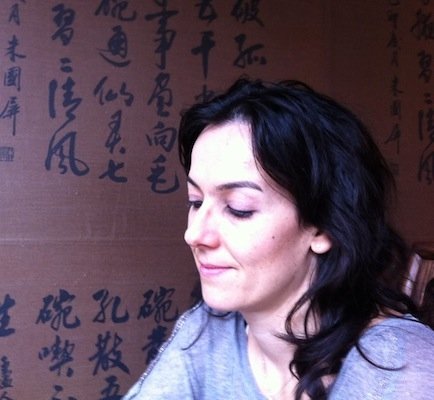The millennial relationship between women and food. This is, in my opinion, the main difference between a man and a woman chef. Historically, the role of women has always been that of nourishing their family but only recently they’ve had access to professional kitchens where, as everyone knows, there’s still a substantial (numerical) difference between genders.
It is renowned that this is a very hard job, with impossible hours and one that is physically consuming. But looking at the tasks that have always been assigned to us women, even though within the domestic walls (raising children, looking after husbands and the elderly, preparing meals, cleaning the house, and taking care of the vegetable garden and the animals, when in the countryside) I believe we shouldn’t be so shocked by the pace of a restaurant’s kitchen - no matter how hectic.

Raspberries tuille and light vanilla cream by chef Tommolini
In my brief experience in the kitchen, I’ve had a chance to meet intelligent, determined, accurate, careful, organised, ambitious, tireless women. I’ve learnt that it is essential not to second the fragile-woman stereotype (which is so much appreciated by the male counterpart) and, most of all, that we shouldn’t try to imitate our male colleagues.
I began to work as a cook rather late, after studying Communication Sciences in Bologna, travelling abroad, specialising in cultural management, and working as a theatre manager around Italy. This may seem as an incoherent decision but, on my side, I had a great passion for food, the habit of buying all sorts of cook books, a family of restaurateurs and at 20, a choice which turned out to be essential, that of becoming a vegetarian.
Besides, I had decided a couple of years earlier to go back to Abruzzo, to a village among hills rich in vineyards and olive grows with as little as 3,000 inhabitants, where people usually don’t go to the theatre but for sure, I told myself, would eat. Most of all, this was a place where it wouldn’t have been difficult to find good products to eat and to cook.

Emanuela Tommolini, vegetarian chef
It was clear that opening an
osteria in which to serve food with clear vegetarian, natural and health fanatic influences while keeping a strong tie with the territory, in a half-deserted village would have not been an easy challenge, so I tried to be as prepared as possible: I participated in many courses in the best places (such as
Istituto Etoile and
Casadonna by
Niko Romito), a stage at
Joia in Milan, I researched for suppliers, studies the fundamentals, experimented, made mistakes, asked for the support of chefs that were more expert and capable than me in order to be able to launch the restaurant.
Today, four years later, after the initial scepticism and boycotting on behalf of many people and the difficulty of making myself a name, I’m proud that Esprì has become a reality with a great personality, thanks to some brave choices and to the absence of compromises, and perhaps thanks to the knowledge that being a woman and a chef changes nothing, but can make a difference.